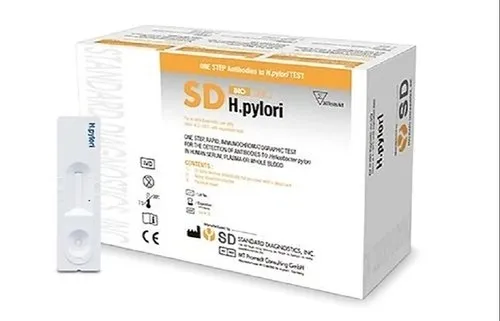H. pylori is a type of bacteria that can infect the stomach and upper part of the small intestine. Infection with H. pylori is a common cause of peptic ulcers and is associated with various digestive disorders.
Blood Antibody Tests: These tests, also known as serology tests, detect the presence of antibodies against H. pylori in the patient's blood.
Stool Antigen Tests: These tests look for H. pylori antigens in the patient's stool.
Breath Tests: Urea breath tests involve the patient drinking a solution containing urea, and then their exhaled breath is tested for the presence of carbon dioxide, which is produced when H. pylori breaks down urea in the stomach.
Biopsy: During an endoscopy, a healthcare provider may take a small tissue sample (biopsy) from the stomach lining and test it for the presence of H. pylori.
